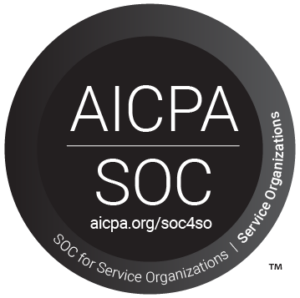SAP GRC Auditing: Why It’s Crucial for Your Organization
SAP GRC Auditing: Why It’s Crucial for Your Organization
Most people hear the word “audit” and begin to tense up. That’s probably because it is typically used in the context of an IRS audit, and nobody wants that. However, an audit is simply an objective examination and evaluation, usually of financial records, and in this context, including systems, applications, and products as well. When you use an SAP landscape, you have the finest business architecture around. It only makes sense to make sure that it is performing at optimal levels. With good SAP Auditing, you will have no worries about governance, risk, or compliance (GRC).
SAP Governance Auditing
Enterprise Resource Planning systems (ERPs) are integrated programs that maintain all of a company’s transactions in a single database. They are key components of your SAP landscape whether you have SAP HANA or any other type. With your SAP landscape reflecting your particular business model, the roles and responsibilities of every agent in the organization is clear. SAP Audits can assess risks to the critical business data that is accessed by multiple users across the company. Inaccurate, invalid, or fraudulent data entered at one point can affect the accuracy of data across the system. Ideally, integration with SAP Risk Management and SAP Process Control will make the SAP Auditing process seamless. You will be able to gain precise insights and real-time analysis of potential problems.
Risk Auditing
Security audits are procedures that let an auditor trace a single transaction as it interacts across a range of connected applications. SAP internal security audit systems can automatically detect transactions that violate security protection protocols. SAP managers and internal auditors use security audits to search for fraudulent transactions, discover control system failures, and access violations. Other security concerns that auditors search for are unauthorized customer profile changes and unauthorized changes to master data files. SAP Auditing streamlines these processes with automated checks and mobile capabilities. That means the ability to assess risks at high speeds and clarify problematic situations keeps your business running smoothly.
Compliance Auditing
Companies have a duty to adhere to all state and federal regulations for their particular industry as well as to protect clients’ private information. SAP Auditing keeps them current with regulations and evaluates whether a business is complying with state and federal rules governing the privacy of information in the company’s control. Businesses that operate internationally are required to comply with any applicable international business and privacy regulations as well. With SAP Auditing, companies can be confident that their SAP systems protect the privacy of consumer information, employee information, and proprietary business information. SAP Auditing means that you have the internal controls demanded by the Sarbanes-Oxley Act (SOX) too.
SAP Auditing keeps your company running smoothly and safely. It chooses high-value issues for further investigation. It empowers your internal auditors to conduct timely risk assessments, and it automates and accelerates the auditing process. With SAP Auditing, you have a simpler approach to creating, tracking, and managing audit issues. It also speeds up the resolution of those issues. Unlike an IRS audit, SAP Auditing allows you to relax, knowing that your SAP landscape is being monitored and objectively assessed.




